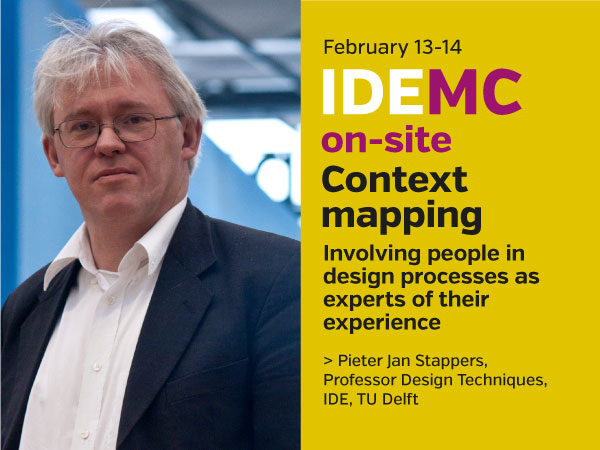
IDEMC: Contextmapping

Contextmapping is just what it says it is: making a map of the context (of use). Introduced in 2003, the term refers to an approach to exploratory and participatory design research which makes use of the expertise of the user and the skills of the designer.
Contextmapping offers a procedure for conducting contextual research with users, where tacit knowledge is gained about the context of product use. It was developed specifically to inform and inspire design teams, so that users and other stakeholders can actively participate in the design process to ensure a good fit between the design and the use of a product or service, the needs of the user and the core competences of the provider. Participants learn the theory of contextmapping in a series of lectures and practical exercises.
During this Master Class, you will:
• understand the techniques of involving users and other stakeholders in design, the role of contextual research in innovation;
• see when contextmapping techniques are useful for gathering insights, and communicating these insights within teams;
• develop a feeling for the psychological processes of reflection and expression of user experience;
• learn how to implement the technique in your own company.
Pieter Jan Stappers is full Professor of Design Techniques at IDE, TU Delft. He is one of the driving forces behind the concept of Contextmapping, with 25 years’ experience of developing tools and
techniques for the early design phase.
